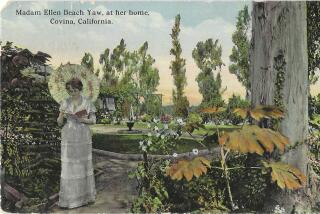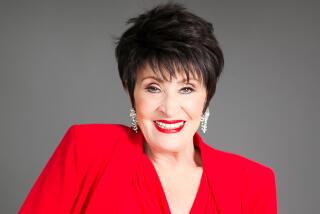Maria Callas: Five great rumors on the soprano’s 90th birthday
Hard as it is to believe that an opera singer can make gossip headlines, Maria Callas was, in her prime, a media phenomenon whose personal life was fodder for journalists and chroniclers of high society.
A symbol of jet-set elegance, Callas was a temperamental celebrity who had a fiery love life. Her diva-hood on and off the stage was legendary. The American-born Greek soprano would have been 90 on Monday, a fact marked by a Google tribute.
Callas was born in New York in 1923 to Greek immigrant parents. She made an early impression as a child singer and pursued her training when her family returned to Greece. Her professional career officially began in 1941 and she was soon performing in major houses in Europe and the U.S.
PHOTOS: Arts and culture in pictures by The Times
Though her bel canto voice is considered as one of the most dynamic in operatic history, Callas’ stormy personal life often eclipsed her professional one. She clashed with opera companies, fellow singers and numerous lovers. She died in 1977 in Paris at age 53 following a heart attack. Her career had been in decline long before then, but her persona remained as entrenched in the public mind as ever.
In the decades since her death, rumors continue to persist about Callas’ colorful career and personal life. Here are five of the most famous anecdotes, their veracity never confirmed nor completely discounted.
(1) Callas once swallowed a tapeworm to lose weight. A rotund child who battled the bulge well into adulthood, Callas was deeply insecure about her weight -- at one point, the 5-foot-8 singer was believed to have weighed more than 200 pounds. Urban legend has it that the soprano ingested a live tapeworm in an attempt to shed fat. Another rumor has her experimenting with a special kind of pasta. Callas rejected the gossip, claiming that she lost weight naturally.
(2) She bore a son with Aristotle Onassis, but the child died soon after birth. Though she is believed to have been infertile, Callas was rumored to have had a love child with Onassis, the shipping tycoon and a Greek compatriot. The son was born in 1960, the rumor has it, and died hours later. Other rumors state that she had at least one abortion while she was with Onassis. Her relationship with the multimillionaire was stormy, as he is believed to have been compulsively unfaithful.
PHOTOS: Celebrities by The Times
(3) Callas continued her affair with Onassis during his marriage to Jacqueline Kennedy. Onassis left Callas to marry the widowed Jacqueline Kennedy in 1968. But it was widely believed that Callas continued her liaison with Onassis well into his marriage with the former first lady. “Greek Fire,” Nicholas Gage’s 2000 book about their love affair, portrays Onassis banging on Callas’ door, begging to be let back in.
(4) Richard Burton rejected her entreaties to costar in “Medea.” Callas’ one foray into the movies came in a 1969 big-screen adaptation of “Medea,” directed by Italian provocateur Pier Paolo Pasolini. The singer wanted Burton to portray Jason, her lover in the tragic story. But the Welsh actor, who was then involved with Elizabeth Taylor, is believed to have rejected the offer. In the actor’s published diaries, he wrote that Callas came calling once “and since I was in a reading mood she was not welcome.”
(5) Callas insulted her biggest operatic rival by comparing her to Coca-Cola. Among Callas’ many rivals was Renata Tebaldi, the Italian soprano. The women’s mutual hatred was widely reported in the media, with the two exchanging insults and barbed criticisms. One account has Callas saying that comparing Tebaldi’s voice to hers was like “comparing Champagne with cognac. No, with Coca-Cola.” Some accounts have downplayed the rivalry, claiming that Callas had profound respect for Tebaldi’s vocal talent.
ALSO:
Review: Brilliant transformation of ‘The Magic Flute’
L.A. Opera’s James Conlon takes on Verdi, Britten and a health scare
Frank Gehry to design performance space named for Gustavo Dudamel
More to Read
The biggest entertainment stories
Get our big stories about Hollywood, film, television, music, arts, culture and more right in your inbox as soon as they publish.
You may occasionally receive promotional content from the Los Angeles Times.







